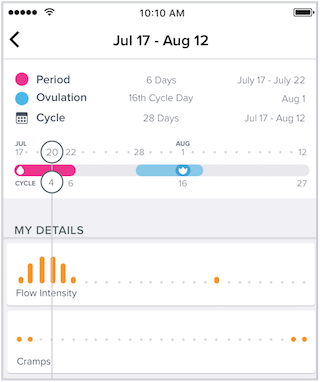Google says the move is not just for abortion clinics, but will also remove location data from people’s visits to other sensitive locations. The company also emphasized its history of “pushing back” against over-reaching law enforcement demands, hinting again at abortion but without clearly referring to it.

With the US Supreme Court overturning Roe v Wade, access to safe abortion vanished almost overnight for millions of Americans. Already, the unfortunate consequences of the decision became visible when a 10-year-old child rape victim was forced to travel to a different state to get an abortion — and we’re only starting.
Abortion providers in states where this is still legal say they’re receiving a sharp increase in the number of patients coming from neighboring states where the practice is now banned. With many US states reverting to century-old abortion laws, there are concerns that states may even ban traveling to another state to get an abortion or may start seeking personal information of the people who have sought or facilitated abortions.
With people’s health information now becoming potentially weaponized, it puts tech companies who have access to this information in a delicate position. Google has now become the first big tech company to publicly say how it will handle such data.
“Some of the places people visit — including medical facilities like counseling centers, domestic violence shelters, abortion clinics, fertility centers, addiction treatment facilities, weight loss clinics, cosmetic surgery clinics, and others — can be particularly personal,” says Google’s senior vice president Jen Fitzpatrick wrote in a company blog post. “Today, we’re announcing that if our systems identify that someone has visited one of these places, we will delete these entries from Location History soon after they visit. This change will take effect in the coming weeks.”
This decision could turn out to be very consequential. Already, in at least two states, authorities have used search history information to prosecute women for abortion. While sensitive search data will likely stay stored, people’s travel locations will be deleted — though it’s not exactly clear what “soon” means. Google also reiterated that the location history of a Google account is off by default.
The company also hinted that it will resist state requests for user data, despite not mentioning abortion directly.
“Google has a long track record of pushing back on overly broad demands from law enforcement, including objecting to some demands entirely. We take into account the privacy and security expectations of people using our products, and we notify people when we comply with government demands, unless we’re prohibited from doing so or lives are at stake — such as in an emergency situation.”
Google also mentioned that they will also address other services that can be linked to abortion (such as Fitbits, for instance). Users can register menstrual data in Fitbits, which can be used to make deductions about a potential abortion.
“Fitbit users who have chosen to track their menstrual cycles in the app can currently delete menstruation logs one at a time, and we will be rolling out updates that let users delete multiple logs at once,” Google’s Fitzpatrick says.

In a separate update, Google said it will also designate US advertisers that dispense pills by mail after a virtual consultation as “providing abortions.” This is because, in order to be allowed to run ads for abortion on Google, you first have to apply for a certification. Now, providers that dispense pills via mail will be allowed to get that certification.
The announcements made by Google come amid escalating pressure on big tech companies to do more to shield sensitive data about their users, protecting the data not just from other companies, but also from government authorities. In May, a group of 42 Democratic lawmakers urged Google CEO Sundar Pichai in a letter to stop collecting and keeping location data that could be used to identify people seeking abortions.
However, while Google’s decision is bound to be influential and significant, it won’t do very much on its own. The company seemed to concede that much, saying that ensuring people’s privacy is a shared responsibility.
“Given that these issues apply to healthcare providers, telecommunications companies, banks, tech platforms, and many more, we know privacy protections cannot be solely up to individual companies or states acting individually,” the post said.
Overturning Roe will come with severe consequences. A string of legal battles is bound to begin, as the US is battling with the complex decisions that emerge in a post-Roe world. Tech companies will undoubtedly have a role to play in this, but when we rely on companies to protect us from the government, it’s not a good sign.









